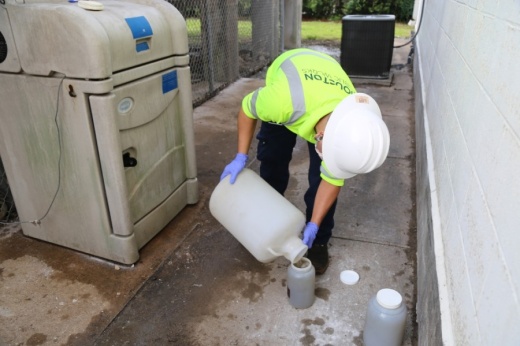“This is not the first time that Houston has suffered a major infectious disease problem, and it might not be the last, either,” said Dr. Anthony Maresso, an associate professor at Baylor College of Medicine and member of the city’s new testing project. “In the '40s and '50s, polio would ravage Houston ... and was a seasonal hot spot in the country.”
Researchers with Baylor College of Medicine and Rice University have been collecting samples from Houston’s 39 wastewater treatment plants since May in collaboration with the Houston Health Department.
So far, the information indicates that the virus is on the decline in Houston and following the trends seen in test positivity rates, officials said Sept. 24.
The wastewater data provides more fine-tuned information about the virus because it is collected from the wastewater systems serving the entire city including both symptomatic individuals and asymptomatic individuals who may not get tested. By analyzing the water weekly, the information is also received more quickly than from the results of nasal and saliva swab tests, which can get caught up in over-burdened test labs, Houston Emergency Medical Director Dr. David Persse said.
“There have been times that we’ve seen 5,000 clinical tests for COVID-19 per day. This is compared to the 2.1 million people covered by our wastewater system,” said Dr. Loren Hopkins, chief environmental science officer for the Houston Health Department.
In the future, the researchers may be able to use the data to find out how much of Houston’s population has already been infected with the virus, according to the health department. However, that estimate has not yet been determined.
By receiving weekly updates from Baylor and Rice, the health department finds which neighborhoods to target with mobile testing and public awareness campaigns asking residents to get tested.
“If we find it in a neighborhood, we get our teams to go door to door and encourage residents to get tested because when you get tested as an individual you know how to protect your family members,” Persse said.
The data can also be narrowed down by ZIP code or to specific locations such as the Harris County Jail or homeless shelters, Persse said.





